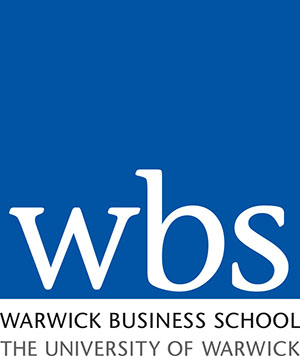- CSR
The ‘green skills gap’ means leaders, not just technicians
There is a significant gap today between the demand for, and willingness of, corporations to transition to more sustainable practices, and the knowledge and skills required at the managerial level to lead those transitions successfully.
“According to the LinkedIn Green Jobs report, green jobs grew at an annual rate of 8% between 2015 and 2021, while the talent pool grew at only 6%.”
Beyond these technical skills, something that has been reported on less - but that is no less critical - are the managerial and leadership skills required to organise, support and inspire teams and departments through these complex transitions, and ultimately to lead organisations into a more sustainable future.
Fred Dahlmann and his colleagues at Warwick Business School have designed a new online programme that seeks to address this vital area of the green skills gap - called Leading Sustainability Transitions.
“Has your organization declared a climate emergency, without a plan on what to do?” asks Dahlmann, Associate Professor of Strategy and Sustainability at Warwick Business School, explaining who this programme is aimed at, “Do you face pressures from investors and owners to develop an ESG strategy? Are your employees and customers demanding meaningful engagement with social and environmental issues? Are you leading the sustainability transition in your sector – or are you following?” As Dahlmann’s questions illustrate, the pressure mounting on senior leaders to take action on sustainability is near universal, arriving from many different angles.
“Accounting firm PwC are set to invest $12 billion over five years to create 100,000 new jobs aimed at helping its clients grapple with climate and diversity reporting,” Reuters reported recently – another indication of the scale of demand around sustainability, here in the area of measurement.
Pinpointing the skills and knowledge required to lead green transitions
At a foundational level, leaders need to gain a fundamental appreciation of basic Earth systems science. This is the holistic study of the many spheres, cycles, and subsystems that interact together on planet earth – from ecology to economics, oceanography to sociology. Managers need some key concepts and frameworks to understand the complex impact of business on the environment and society.
Related to this, managers should have a grounding in systems thinking – which helps understanding the complex chain of interconnections, feedbacks, delays, accelerating factors etc - associated with sustainability and business impact.
Secondly, they need an introduction – as well as time to reflect personally - on values-based leadership, and the ethical motivation behind the global sustainability movement or trend. It’s important for managers to be able to combine their commercial instincts and acumen with ethical logics and reasoning.
Managers need an appreciation of the emerging risks as well as the opportunities arising from sustainable transitions. From the risks of inaction, to well-intentioned missteps – and from the potential to innovate new business models, products, and access new markets.
Strategic thinking is another key component too – the ability to look ahead to the more distant future, anticipating a changing business landscape, and the ability to adapt to the impacts of new trends and technologies in an integrated and strategic manner.
Managing uncertainty is a requisite for any organisational change or innovation project, and leading sustainable transitions are certainly no different. The ability to turn complexity into clear strategic programmes for your organisation, and the ability to demonstrate and inspire resilience in the face of the failed experiments that come along with any sustained innovation effort.
Finally, the ability to manage and communicate with a wide array of stakeholders is critical. From employees, to customers, investors, suppliers, competitors, governments, activist groups, start-ups and entrepreneurs – sustainability is by its very nature an area that demands the involvement and participation of diverse groups with different interests, to ensure any that solutions devised are rigorously tested but also effective.
Access all areas
Just as the definition of sustainability in the business world is broad and far-reaching – informed by the UN’s 17 SDG’s - and including social issues such as inequalities and diversity - as well as environmental and ecological targets – so too are the implications of sustainability within the structure of an organisation.
Sustainability is a ‘systemic’ issue that affects all areas of a business. “It’s no longer just a single business function but a necessary mindset required among employees across the organisation,” Dahlmann explains, “There are implications affecting all departments and business units - from strategy, to sales, from product development, to operations, to supply chain, HR, and finance – really it touches everything.”
Ultimately sustainability gets to the very heart of what a business is – what value it is creating, what is its organisational purpose, what is it offering its customers, clients, and what is its impact on the wider society and planet. Because of this, Dahlmann suggests, “Sustainability needs to be fully embedded within an organisation’s purpose and strategy.”
With this objective in mind, the new WBS programme addresses sustainability from three levels:
1) the broad, macro-level of sustainability as a complex global challenge;
2) the organisational perspective, examining sustainability as a strategic challenge in need of coherent and integrated responses across the organisation; and
3) the team and individual level, recognising that change is best enacted through innovative leadership approaches that integrate knowledge of behavioural science into decision making.
In order to speak expertly across these three levels, WBS include experts from across disciplines within the business school, rather than rely on one individual to cover the diversity of topics. “Sustainability is a complex and multi-faceted issue,” says Dahlmann, “It’s a ‘wicked problem’ in other words, that requires interdisciplinary approaches for sense-making and developing well-rounded responses.”
Peer learning, problem solving, and co-creation
Problem-solving is a key aspect of leading sustainable transitions in business, and in the integration of sustainability more widely. There is a ‘design thinking for sustainability’ lesson in this program to give participants a grounding in co-creation or co-design techniques. This is design thinking’s eminent problem-solving framework, which harnesses the power of bringing diverse stakeholder groups together, with complementary knowledge and varied experiences of a particular problem, in order to generate innovative solutions.
In this same way, the value of peer to peer learning on a programme like this can be hugely valuable, bringing together as it will managers and leaders from around the world, from diverse industries and backgrounds – cross-pollinating ideas and approaches, and offering space and time to reflect on what can often seem like overwhelming challenges when faced without support.
“Sustainability is fundamentally a global challenge that requires a diversity of responses from actors around the world,” says Dahlmann, “while the course was developed at WBS in the UK, there is a clear recognition that addressing sustainability does not suit a ‘one-size-fits-all approach’, or the outdated notion of ‘West is best.’ Therefore examples and concepts will speak to and reflect the needs of a global audience.”
The programme is asynchronous in delivery format, which further supports those seeking to develop their knowledge and skills from a wide across the globe.
“Time availability is a challenge for anyone seeking to engage in professional development, and our course is designed to suit those who are likely to be able to work in short bursts or sprints only. Again we want to enable as wide a range of diverse individuals and backgrounds as possible to participate.”
Risks, opportunities, and rewards
Many of the arguments in favour of sustainability as an opportunity for business growth have been won already and won well. So too, in the court of public opinion and consumer opinion, the verdict on sustainability could not be clearer – consumers are voting with their feet, and with their wallets – and brands caught napping, or worse – are being punished.
Even once a corporation shows willingness to transition to more sustainable practices however, the path is wrought with difficulty, complexity, and the potential for damaging missteps.
For example, an excessive focus on risk avoidance, and ESG compliance instead of ESG innovation, for example, as Dahlmann puts it, “Leads to a form of myopia. It ignores the changing business environment and the emerging commercial opportunities across key sectors. Energy, mobility, housing, health, food – to name a few.”
The pursuit of digitalisation is similarly problematic – especially where sustainability has been treated as a parallel issue. Rather than looking for opportunities to address both in combination, a digitalisation strategy can quickly wrack up scope 3 emissions that dwarf the carbon emissions they set out to reduce.
Engaging in issues and initiatives that provide short-term reputational gains but which sooner or later fall foul of emerging standards and expectations is another self-inflicted injury we see companies suffer more and more. Question marks around carbon offsetting schemes, for example, and the risk of being accused of greenwashing or purpose-washing.
All this drives home the point that sustainability is as much a managerial and leadership challenge as it is a talent hunt for green technical expertise. Whether your organization is struggling to keep up with your competitors in green innovation; or whether it has made well-intentioned commitments, but without a clear strategy or prevailing mindset to back it up in reality – or whether you are simply are wondering how to develop yourself professionally by focusing more strongly on sustainability as a burgeoning area of knowledge and skills, then those skills could scarcely be more urgently needed than they are today.
Warwick Business School is a leading thought-developer and innovator, in the top one per cent of global business schools.
ARTICLES YOU MIGHT LIKE
BOOK REVIEW
A practical guide to sustainable corporate sourcing and running a scandal-free supply chain
DEVELOPING LEADERS QUARTERLY MAGAZINE AND WEEKLY BRIEFING EMAILS


































